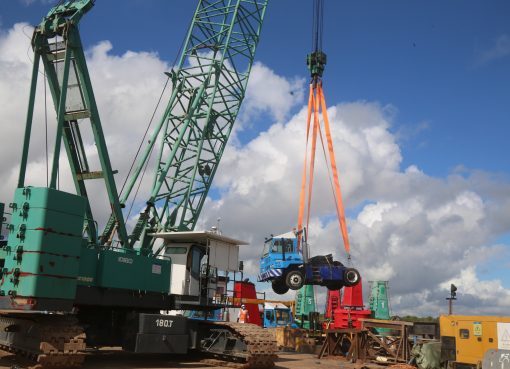Horticultural sub sector in Kenya has recorded a sustained growth with the value of exports growing at 33 per cent in 2018 compared to 2017.
According to a report released Tuesday by the Fresh Produce Exporters Association of Kenya (FPEAK), horticulture earned the country a total of Sh.153 billion worth of exports in 2018 up from Sh.115 billion in 2017 from the sale of fruits, vegetables and flowers in the international markets.
The FPEAK Chief Executive Officer, Hosea Machuki said that the horticultural sector has been on a sustained growth and may soon overtake the traditional export commodities of tea and coffee.
“Flower exports earned Sh.113 billion, fruits and nuts approximately Sh.12 billion and vegetables fetching Sh.27 billion, totaling to over Sh.153 billion. The future of horticulture is promising and our projection for 2019 is Sh.160 billion,” he said.
He further observed that apart from the traditional destinations of Holland, United Kingdom (UK), France, United Arab Emirates and Germany, the Association, in collaboration with the government, is exploring other markets which include China and the United States (US).
“We intend to take advantage of direct flights to US to airlift our fresh produce to New York,” added Machuki.
The Kenya Flower Council (KFC) Chief Executive Officer, Clement Tulezi said that despite the growth in the sector, there was a myriad of challenges which the government would need to look into with an aim of boosting the sector.
“There was a shortage of fertilizer especially calcium nitrate which is largely used in flower production from the month of June 2018. Others are slow process of testing and releasing of the same by Kenya Bureau of Standards (KEBS),” he added.
He said that about Sh.3.5 billion in Value Added Tax (VAT) refund to horticultural farmers was still being held by Kenya Revenue Authority thus crippling the operation of various producers.
“This has resulted to the farmers going for commercial bank loans which are very expensive to service,” added Tulezi.
Others are slow testing and certification by Kenya Plant Health Inspectorate Service (KEPHIS) due to equipment breakdown, high cost of energy and closing of the runway at Jomo Kenyatta International Airport (JKIA) between 10pm and 5am for annual maintenance.
Tulezi requested for rescheduling as the timings of maintenance at JKIA as the ideal time for flower loading and haulage was at night.
The Principal Secretary (PS) in charge of Trade, Dr. Chris K. Kiptoo who was also present said that the government would support the horticultural sector for growth in achieving The Big Four agenda.
He praised the sector for achieving a remarkable growth despite various challenges.
“President Uhuru Kenyatta has shown his commitment by setting up a government sub-committee to see to it that we increase exports headed by Trade Cabinet Secretary (CS), Peter Munya. Horticulture is one of the exports that we will support,” said the PS.
He said that the Central government is engaging the Council of Governors and various economic blocks on issues of taxation and to help in identifying what each county or block could produce for export.
“The government is committed to looking for new markets as well as securing the existing ones,” Dr. Kiptoo added.
By Simon Githogori



